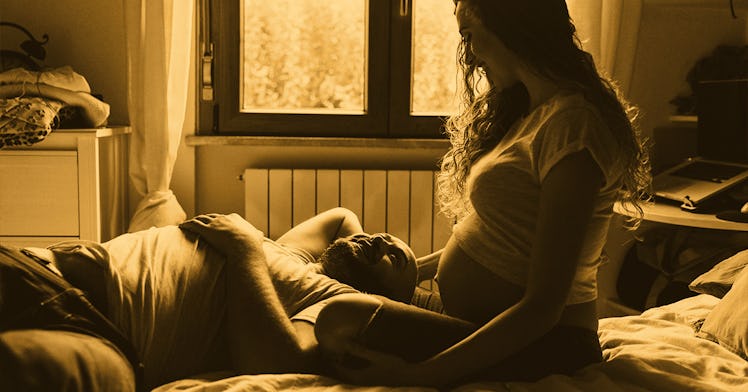The Science Of Having Kids In Your 20s, 30s And 40s
It's probably not the age you think it is.

Determining the best age to have a kid can be complicated. Do you put the emphasis on your career? The reproductive health of you and your partner? The amount of kids you want to have? Or the life experiences you hope to enjoy?
If you happen to have your whole life ahead of you (lucky jerk), you may be weighing the pros and cons of the best age to have a kid. Of course, science has some suggestions.
The Fertile 20s
As a decade, your 20s are ripe for hell-raising, travel, and messing up while you still have very little to lose. That said, you and your partner are at the pinnacle of reproductive health. Here’s how it breaks down:
The Physical
Women in their 20s are biologically primed to have babies. According to one researcher in the journal Social Forces, it’s when their eggs and plumbing are the healthiest they’ll be to bring a life into the world. Having kids in your 20s reduces risks for chromosomal disorders, or pregnancy complications like gestational diabetes, preeclampsia, and other processes linked to miscarriage.
But the same researcher points out there is a catch: Women who have babies in their 20s have worse health outcomes later in life than those who delay. That’s likely due to younger mothers missing out on important social and job opportunities that lead to improved health in the future.
That said, a recent Danish survey suggests if you want to have more than 2 kids, you should start in your early 20s. So take that into consideration.
The Psychological
While the body might be ready for kids in your 20s, the mind may be off pace. The 20s have a tendency to be pretty tumultuous. It’s also generally the time people start building a career that will pay off for family in the future.
Parents in their 20s can get isolated. Particularly as parenting age increases across the United States. You may find yourself distanced from childless friends as you care for your kids. That could be one of the reasons a 2014 study showed a greater risk for depression in young fathers after their first kid.
The 30s’ Ticking Clock
In your 30s, you’ve had enough life experiences to feel stable and are probably well onto a career path. But everyone’s plumbing is aging, so time starts being an issue. Here’s what it looks like:
The Physical
Women reach what’s called “advanced maternal age” at 35 years old. Men don’t have to deal with that, which you definitely shouldn’t feel smug about. What that means is that conception begins to get more difficult and the risk for pregnancy complications and chromosomal abnormalities begin to increase.
At the same time, women who become pregnant in their 30s are more likely to receive a ton of benefits to their mental acuity from the hormonal fluctuations that affect their bodies over 9 months. Much more than younger women. Also, on average they tend to have access to better healthcare and other resources that will help not only with the pregnancy, but the first crucial months of parenting. That’s why mothers who delay may have better health outcomes in the long run.
The Psychological
If you and your partner are in your 30s, you’re likely far more equipped to deal with the stresses of pregnancy and parenting. You are also more likely to have a cohort of friends who can share their experience and relieve some of the burden. Not to mention you’re probably less angsty about earning and career.
The Impending Infertility Of The 40s
Having a baby in your 40s can absolutely happen and can totally lead to a healthy family. Also parents in their 40s probably have it together the most. Still, the risk factors are getting steep. Consider this:
The Physical
For women, egg supply is dwindling and the ovaries are having a fire sale. They release more eggs in one go, which increases the chances for multiples. That’s if pregnancy can happen at all. Many couples considering kids at this age may opt for Assisted Reproductive Therapies like in vitro fertilization.
Both you and your partner can contribute to chromosomal abnormalities now. While you’ll still be fertile for many more years, the chances for mutations in the sperm increases. This is also the age when the chances for a whole slate of pregnancy complications begin to peak. Still women’s health can be greatly improved by pregnancy at this age, particularly when it comes to the brain health.
The Psychological
Parents in their 40s tend to have the benefit of perspective that will make them patient and calm parents. That particularly true for fathers who are seeing a drop in testosterone. That said, you will have to deal with the fact you may not be able to keep up with your kid as much as you’d like. But if you’ve always wanted to have a kid, a little creak in the knees is not a bad price to pay.
This article was originally published on